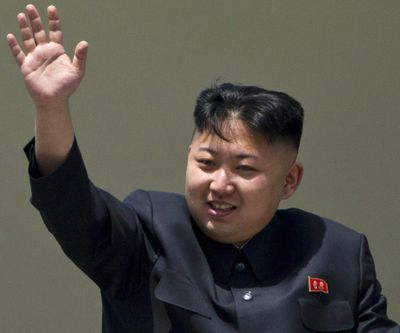U.S. officials visited N. Korea, sources say
Covert trips aimed at improving relations

WASHINGTON – A White House official made two secret visits to North Korea last year in an unsuccessful effort to improve relations after new ruler Kim Jong Un assumed power, according to former U.S. officials familiar with the trips.
The brief visits in April and August were aimed at encouraging the new leadership to moderate its foreign policy after the death of Kim’s father, longtime autocrat Kim Jong Il, in December 2011.
The ruling elite apparently spurned the outreach effort, however. This month, after a surge of fierce anti-U.S. rhetoric, the government in Pyongyang defied international warnings and conducted its third and most powerful underground nuclear test.
The former U.S. officials said the first visit was an unsuccessful attempt to persuade North Korea not to launch a long-range rocket.
North Korea carried out the launch April 12. The missile flew only a few minutes before it exploded and crashed into the sea. A subsequent test of another long-range rocket in December was successful.
The April trip was led by Joseph DeTrani, a North Korea expert who then headed the National Counterproliferation Center in the Office of the Director of National Intelligence, which coordinates U.S. intelligence agencies, the former U.S. officials said. It was unclear who led the August trip.
They said Sydney Seiler, who is in charge of Korea policy at the National Security Council, went on both trips.
The White House, State Department and CIA have refused to confirm or deny the 2012 trips, which occurred during the U.S. presidential election season.
U.S. officials have visited North Korea on and off for years. They include Secretary of State Madeleine Albright, who led an official state visit in 2000. The last official U.S. visit was in 2009 when U.S. special envoy Stephen Bosworth sought to restart stalled six-party negotiations on North Korea’s nuclear program. The talks have not resumed.
DeTrani left the government last year and now heads the Intelligence and National Security Alliance, an industry group.
“There are certain things I just won’t talk about, and this is one subject I really feel it’s not appropriate for me to comment on,” DeTrani said in a telephone interview.
Without confirming the 2012 trips, DeTrani said it “makes eminent sense” for the United States to conduct talks with North Korean officials after Kim Jong Il’s death. DeTrani said he and other U.S. experts initially saw signs that Kim Jong Un might behave less rigidly than his father, including putting moderate figures in key government positions.
Those hopes were quickly dashed, however.